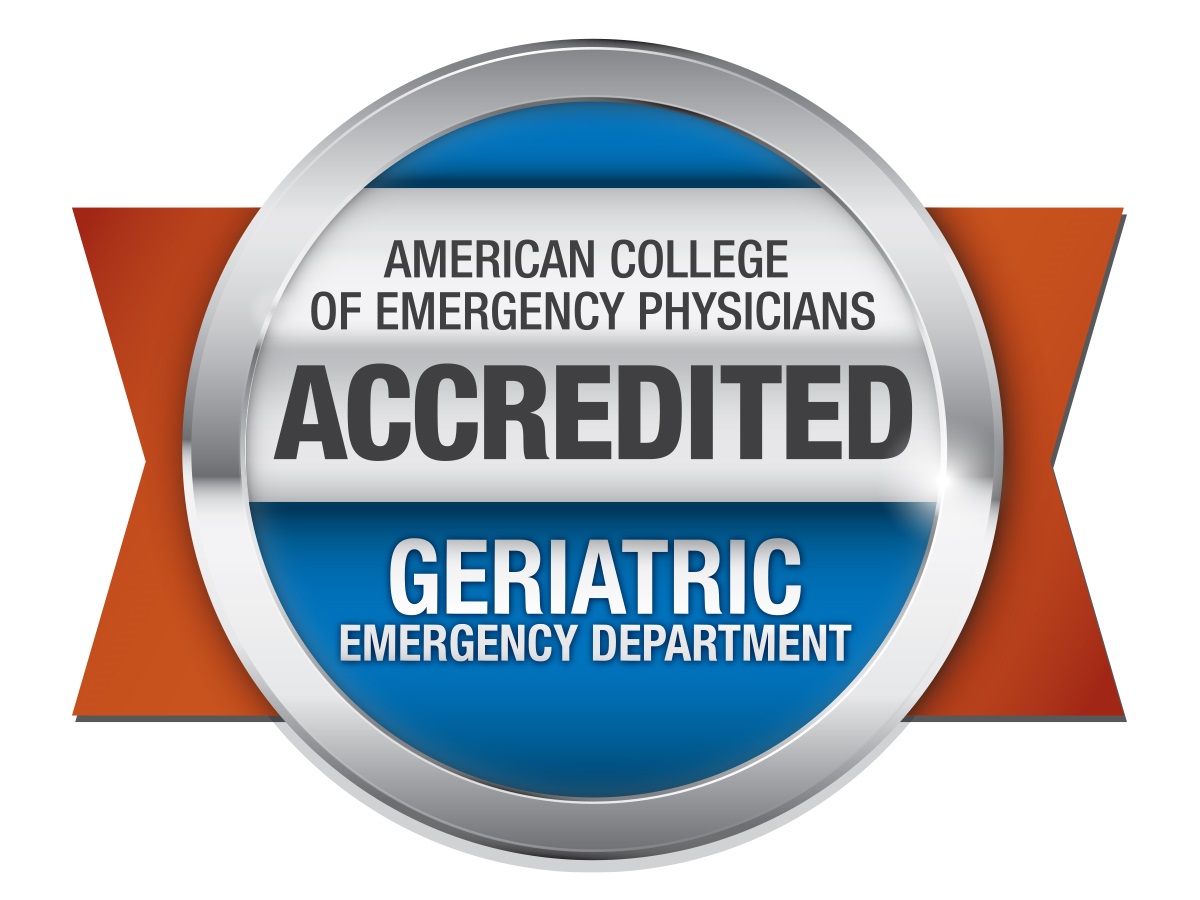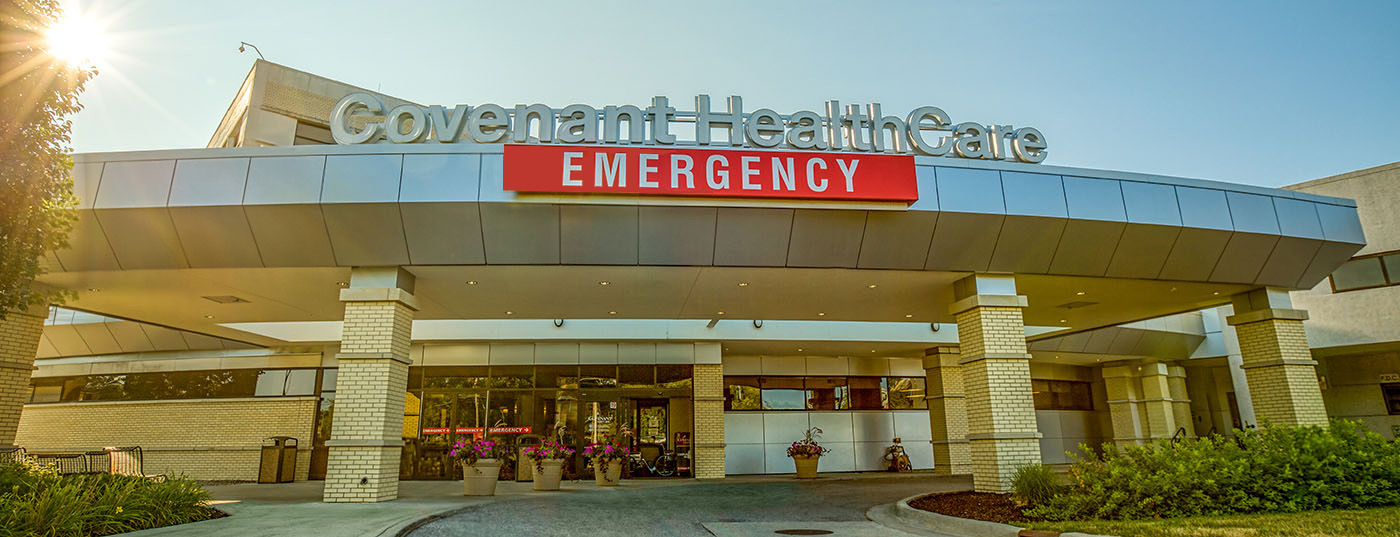Covenant Emergency Care Center
Only Covenant HealthCare provides extraordinary emergency and trauma care for every generation, from babies to grandparents.
Whether your emergency is a heart attack or stroke, a traumatic accident, broken bone, or a serious illness, you will receive the highest level of care at Covenant. With our Emergency Medical Records Technology, we'll communicate directly with your primary physician to ensure you receive the best care in the emergency center and afterward.
- The region’s only specialized Pediatric Emergency Care Center
- The only specialized Senior Emergency Care Center in the region, and the first in the region to be named an Accredited Geriatric Emergency Department by the American Academy of Surgeons
- The only Level II Trauma Center verified by the American Academy of Surgeons for both adult and pediatric trauma care
- Only board-certified emergency physicians and trauma surgeons
- More nurses with greater specialty training
- The most comprehensive emergency department, caring for more patients than any other emergency department in our twenty-county service area
- Diagnostic equipment within the department
- 65 private patient rooms
- Free valet parking is available
If you are having a medical emergency, please call 911 or go to your nearest Emergency Care Center.
Covenant Emergency Care Center
900 Cooper Ave
Saginaw, MI 48602
(989)583-0000
- Open 24 Hours
- Level II Trauma Center for adults and pediatrics
- Pediatric Emergency Care
- Senior Emergency Care
Visitor Information
For patients in the Emergency Care Center, we welcome a maximum of two (2) healthy adult visitors per patient at a time, as space allows. Visitors are generally expected to stay with the patient, however, the nurse in charge may request that all visitors wait in the waiting area. Your help and cooperation will be appreciated if this is necessary.
What to Expect When You Arrive at the Emergency Department
Triage
In most cases, you will stop at the nurses' station when you first enter the Emergency Care Center. You will be asked some basic questions to check in. The nurse will check your vital signs, take a brief medical history and evaluate your condition to assign a priority level. Our goal is to complete triage within 15–30 minutes of your arrival.
Priority 1: Life-threatening condition that needs IMMEDIATE medical attention (i.e., car accident, heart attack, stroke symptoms, severe burn)
Priority 2: Urgent condition that is not life-threatening (i.e., severe abdominal pain, shortness of breath, asthma, minor chest pain)
Priority 3: Minor medical conditions that require treatment. A delay in treatment will not cause the condition to worsen (i.e., back pain, cough, earache, sore throat)
You will be seen based on the urgency of your condition, not the order you arrived.
During Your Visit
The treatment you receive depends on the medical condition you are experiencing. You may require blood tests, x-rays, or other tests. Test results may take an hour or more. More tests may be ordered upon receiving the results of the initial tests. This could lengthen your visit time. Your nurse will continue to monitor your condition while tests are being done. If you have any questions, please ask your nurse. After the Emergency Care Center physician examines you and reviews all of your test results, a decision will be made whether you will need to be admitted or treated and sent home.
If You Are Admitted to the Hospital
The doctor will coordinate with your primary care physician or the on-call doctor. A hospital room will be assigned when one is ready, you’ll be transferred from the emergency room to the hospital room, and your care team will be notified. You may experience delays if a room isn’t immediately available or needs to be cleaned.
If the hospital is at capacity, admission may be delayed up to 24 hours. You’ll stay in the Emergency Care Center during this time, where staff will continue to monitor your condition and provide care.
If You Are Treated and Sent Home
Your nurse will discuss with you any medications you need to take, any recommended follow-up with a primary care physician or specialist, and provide you with discharge instructions to assist in your care at home. Following your treatment and determination that you can safely be sent home, a registration associate will speak with you regarding the check out process.



